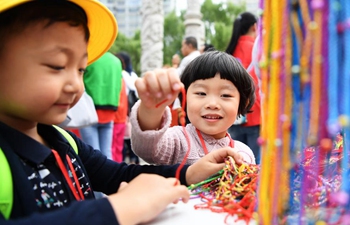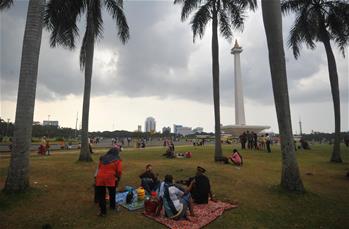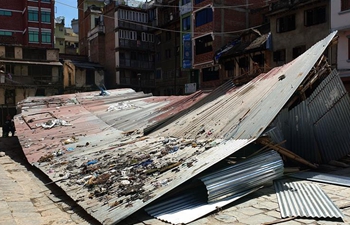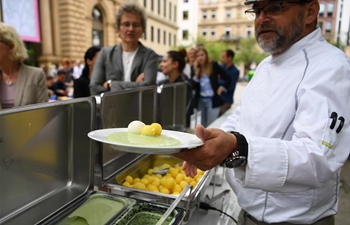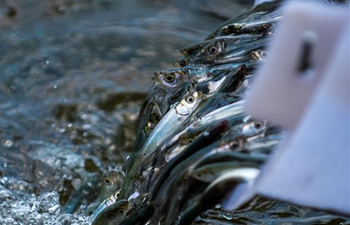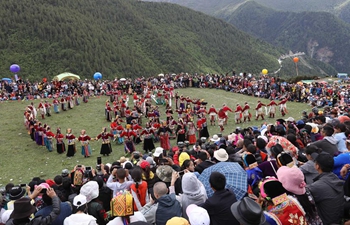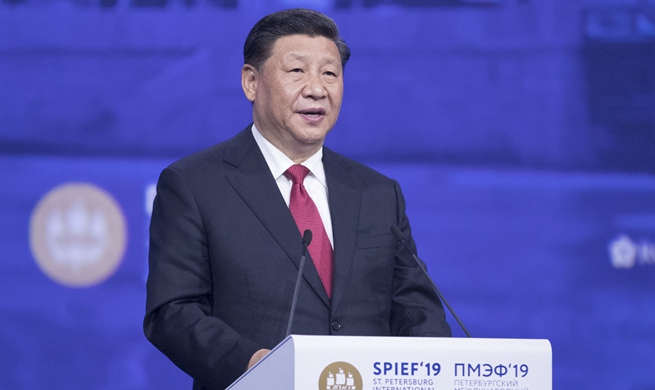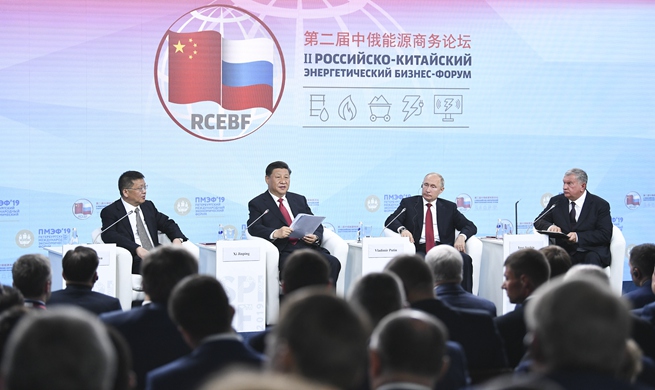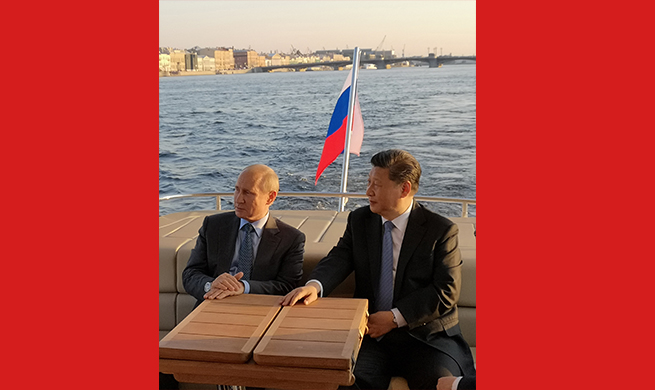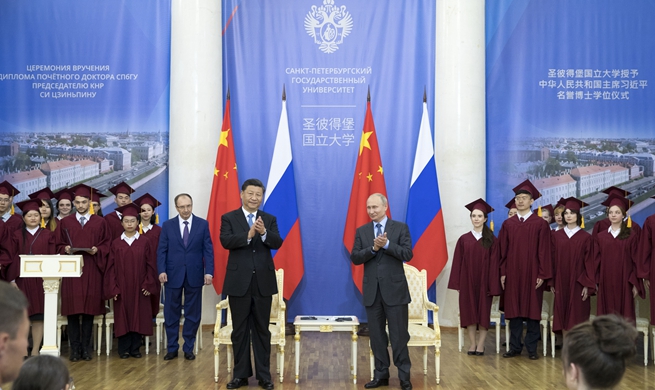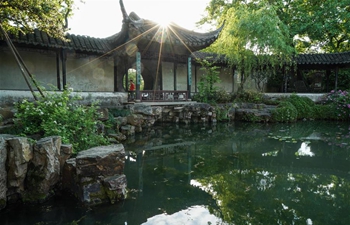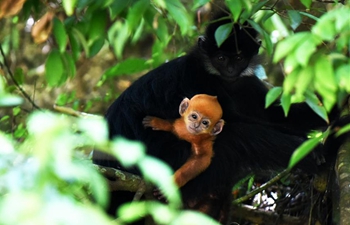by Raimundo Urrechaga
HAVANA, June 7 (Xinhua) -- Until just a few days ago Havana's Old Town was swarming with U.S. visitors, mainly from cruise ships, who toured the zone to learn about its history, culture and heritage.
Private businesses in the area like restaurants, cafeterias, craft sellers and the iconic convertible vintage cars thrived with thousands of tourists supporting their activities and directly engaging with the booming sector which currently employs more than 584,000 Cubans.
However, that reality dramatically changed this week when Washington decided to abruptly end cruise ships to the island and people-to-people educational exchanges, the most popular category used by U.S. citizens to travel to Cuba.
Now, many of these small entrepreneurs are left wondering what the future of their businesses will be like without visitors from the neighboring country.
"About 90 percent of incomes for private workers in Old Havana came from passengers on U.S. cruise ships. We'll be severely affected as they won't come anymore," Miguel Angel Morales, the owner of private restaurant "La Moneda Cubana", told Xinhua.
This "paladar" as restaurants are called on the island is strategically located in one of Old Havana's squares. It was opened in 2011 as part of the Caribbean nation's small market-oriented reforms to open up the private sector.
Morales had direct contracts with U.S. cruise lines and tour operators to bring in visitors to his eatery.
"As time passes by we'll see how these new regulations affect us and the private businesses in the area," he said.
People-to-people educational travel was a category created under former U.S. President Barack Obama that allowed Americans to visit the island on organized thematic tours that promoted cultural exchanges between the two countries.
The thaw in ties, initiated in 2015 by Obama and former Cuban leader Raul Castro, led to a substantial increase in U.S. visitors and the opening of thousands of small startup businesses like inns, restaurants, cafeterias, and craft shops.
U.S. cruises brought to Cuba 340,000 Americans in 2018, double the number of the previous year and placed the United States as the second largest market for visitors to the island just behind Canada, according to official data.
Another 298,000 U.S. citizens visited the Caribbean country last year through other routes like commercial flights, private vessels and aircraft.
"With Obama it was the U.S. tourism boom on the island, but over the last year with (U.S. President Donald) Trump's measures we have seen incomes decrease," Morales said.
Other small business owners in the area, like 24-year-old Gillian Sosa, who sells crafts and souvenirs, believe Washington's regulations could also scare off tourists from other nations.
"Trump's new measures will definitely influence visitors from other countries, we have to wait to see what happens but our incomes are going to be less," she told Xinhua.
The latest White House move will drain off one of the major channels for U.S. citizens to visit Cuba and a source of important economic income for the Cuban government and the emerging private sector.
The U.S. Treasury Department said in a statement on Tuesday it was terminating group people-to-people educational travel to Cuba as of June 5, citing the country's "destabilizing role in the Western Hemisphere" and its support for "U.S. adversaries in places like Venezuela and Nicaragua."
It also alleged this category along with cruise ships was a way for Americans to do "veiled tourism" in the Caribbean nation and "provide economic support" to Havana.
Washington has for decades banned its citizens from traveling to Cuba for tourism purposes and with the new measures announced on Tuesday Americans can only do so under 11 licenses that include academic, scientific, humanitarian and religious purposes, among others.
"The economy needs to be seen as a whole, it's impossible for the U.S. to believe it can take measures against the Cuban government and not affect private workers or the people in general," said Camilo Condis, a barber shop owner.
"The U.S. is obviously looking to economically strangle the Cuban government but also the people. With no cruises and less U.S. visitors, those who like us live off the tourism industry will definitely feel the impact," said Johnny Herrera, a waitress at Old Havana's Cafe Roma.
U.S.-Cuban relations have soured since Trump came to office, partially rolling back the detente initiated by Obama and reverting to Cold War rhetoric, while maintaining re-established diplomatic ties.
